Ecuador's Silicon Valley? Quito Bets Big To Be South America's Next High-Tech Powerhouse
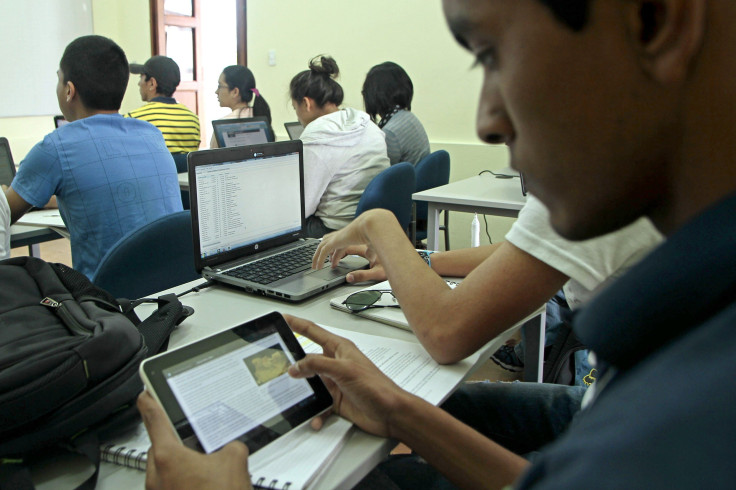
YACHAY, Ecuador – Fernando Albericio wanted to make history. Lured by the opportunity to help jumpstart a tech revolution in a new country, Albericio, a veteran professor of organic chemistry with a passion for developing science and higher education centers across Latin America, packed up his home in Spain, put his family on a plane and moved into a new house in Ecuador in May 2014.
His new career found him overseeing Yachay Tech, Ecuador’s first full-fledged research university, specializing in technical fields like nanotechnology and petrochemistry and staffed with world-class faculty, something akin to a Massachusetts Institute of Technology for the Andes. It was the centerpiece for what President Rafael Correa called “the most important project in the history of Ecuador,” a brand-new city that would catapult the small, often overlooked nation into a new role as South America’s next powerhouse of technology and innovation.
But within a year of Albericio's move, frustration had set in. Ecuador was plunged deep into an economic crisis, and Albericio was regularly clashing with the three other members of the university’s board of trustees over what he said was mismanaged funds. Students were taught in classrooms outfitted with chairs and desks left over from a rundown local high school. Research laboratories didn’t have gas or ventilation systems installed. In July, Albericio was voted out of his post, and a handful of teachers and administration staff disillusioned with the entire project resigned in protest.
“The students there are the best in the country,” he said. “They all want to be in nanotechnology. But they will find after two, three, four years, that there is nothing for them there. And this will all be a big lie.”
Albericio's criticisms come as more Ecuadorians are questioning Correa's lofty plans to transform Ecuador into an epicenter of global innovation. The city of Yachay, also called the “City of Knowledge,” is at the core of the president’s bid to diversify the national economy and turn Ecuador into a high-tech hot spot for the region in the next 30 years. If the plan works, Yachay will help incubate a generation of top-tier science and engineering talent that will discover medical cures, develop astounding new technologies and attract the world’s top companies, making Ecuador the envy of its neighbors. But that’s a tall order for a city being built entirely from scratch, and with plummeting revenues and controversies already brewing over funding and construction plans, it’s far from certain if the proposed miracle in the Andres can survive the steep uphill climb ahead.
‘If We Build It, They Will Come’?
Ecuador’s economy has long been wanting for a transformation. Its economic output and gross domestic product per capita have often ranked in the bottom half of South American nations, alongside neighbors like Peru or Paraguay rather than regional giants like Brazil or Chile. While Correa’s tenure as president, which began in 2007, brought along with it a steep reduction in poverty and a wealth of new infrastructure, the economy remains deeply dependent on exports of raw goods like crude oil, bananas and shrimp. The need to advance beyond Ecuador’s dependencies on raw goods became painfully acute over the past year, as falling global crude oil prices gouged a $7 billion hole in next year’s government budget.
Correa kicked off the plans to build Yachay in 2012, with the vision of creating a “knowledge economy” that could add innovative products to the economic mix. As soon as the plans for Yachay became public, questions abounded over how the remote city would live up to its promises and attract the best minds Ecuador had to offer. Yachay, currently made up mostly of vacant pasture land, is a two-hour drive through twisting mountain roads from the capital, Quito, the nearest major city and location of the closest airport. The closest municipalities, Urcuquí and Ibarra, are quiet towns that have much less to offer in nightlife and culture than Ecuador’s larger cities.
“A lot of efforts [to build high-tech cities] revolve around a real estate proposition sometimes: ‘If we build it, they will come.’ And that’s kind of dangerous,” said Margaret O’Mara, a historian at the University of Washington in the U.S. who has studied the rise so-called knowledge cities around the world. “For building a research park, the places in North America that are 40 kilometers (24 miles) out from an urban area are having a hard time. It’s hard to persuade people that they want to live and work in these environments.”
Yachay is part of a recent global wave of efforts to kick-start local and national growth through brand-new technology hubs. The wave, which began in the 1990s, has given way to about 150 similar projects currently underway around the world, said Sarah Moser, an assistant professor of geography at McGill University in Montreal, who has studied the development of many of these cities. “It seems to be this fever spreading around the global south,” she said.
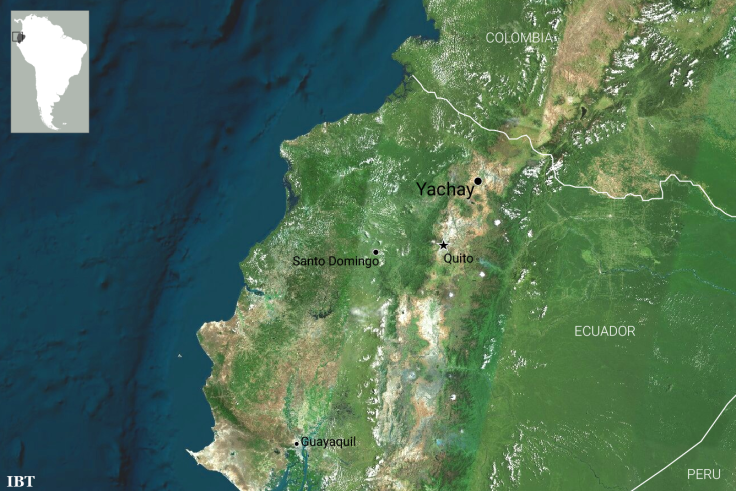
Many looked to Silicon Valley as inspiration for creating an environment to incubate the next Mark Zuckerberg. “But how to engineer that is really tricky,” Moser said. “You look at Silicon Valley, which has world-class universities nearby, so there’s a lot of buzz and energy bringing people around with a lot of money, but you can’t just create that out of nothing. I would say none of those cities are success stories at this point.”
It takes several decades to be able to let a new city develop, Moser said. And several have already fallen short of expectations: Cyberjaya, a project started in Malaysia in the 1990s, was intended to be a “Silicon Valley of Southeast Asia,” but instead has become more of a call center for companies like IBM, she said. And in Lavasa, India, a planned “smart city” near Mumbai, executives have frequently clashed with local citizens’ groups, souring relations between the city and community.
Yachay could be promising, given that Ecuador has been in need of beefing up its higher education landscape and creating an environment to grow a high-tech economy, Moser said. “But there are some universities that the government could have invested in that already have infrastructure and facilities, and that might have been cheaper and more sensible in the long run,” she said. “Starting a university in the middle of agricultural land, that’s going to be an uphill battle.”
Economy In A Crunch
Yachay EP, the state company tasked with making Correa’s dream city a reality, vows to avoid some of the pitfalls that other projects have succumbed to. Yachay, comprising 11,300 acres of pastoral land, was born from the best mix of ideas culled from technology parks and research cities around the world, said Danilo Moreno, Yachay EP’s international relations officer.
“We’re looking at 30 to 35 years to have a whole city,” he said on a recent day as he looked out over a panoramic view of Yachay from the top of a windy bluff. “Normally, you need more than 40 years to complete a city. But we’ve been working and talking with places in Korea, France, Germany, Silicon Valley, Russia and we are learning from them. We are not going to have the same mistakes that they’ve already had.”
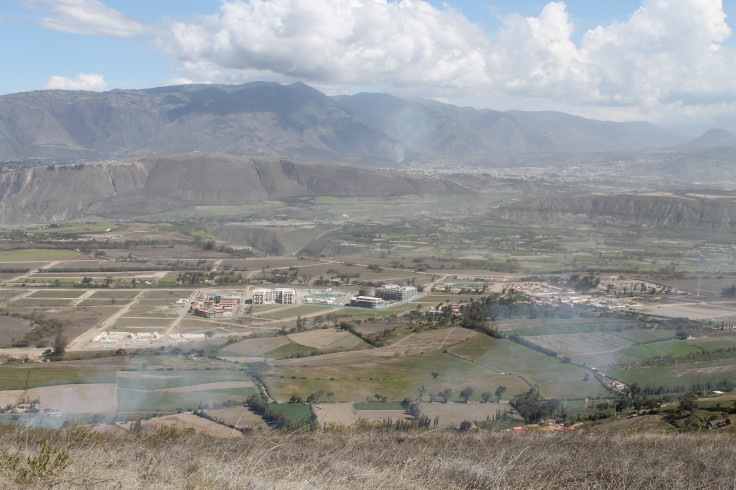
But much of the excitement over Yachay began before Ecuador’s finances began careening into a tailspin. The global price of crude oil, which Ecuador depends on for about half its export revenue, plummeted by nearly two-thirds since June 2014, putting many of Correa’s big-ticket agenda items at risk, financially and politically. As public revenues began to drain, mass protests against him boiled during the summer for what critics said were unsustainable economic policies. It’s unclear if Yachay, with a $1 billion price tag for its first five years of development, will survive past the tide of slumping oil prices or the end of Correa’s presidency in 2017.
Government support is going to be essential for the project in a post-Correa Ecuador, said Daniel Larson, the founding chancellor of Yachay Tech and a former physics professor from the University of Pennsylvania. “It will be a real problem for Ecuador if the decision is to cut funding to the university. All of these people will leave, and the university will be a failure,” he said. “If they want that, they can cut the funding. If they want the promise, Ecuador has to find the resources.”
Living In 'The City Of Knowledge'
A fledgling new community has settled into Yachay since construction began two years ago. Yachay Tech, now in its second year of classes, is expected to motor the city’s future development, churning out a ready made workforce for research institutions and industries that the state company is trying to lure to the city. The approximately 800 students currently enrolled are Ecuador’s best and brightest, all scoring in the top 10 percent in the required national university exam. Students can major in fields like physics, geology, petrochemistry and biology, taking advantage of Ecuador’s biodiversity and robust oil industry in their studies. Tuition is free, as it is for all of Ecuador’s public universities, and students are required to start taking classes in English in their third year.
The campus has a peaceful, cheery atmosphere, with pebble-lined walkways zigzagging through mazes of leafy trees and open courtyards swept spotlessly clean. Profound, inspirational quotes about the value of education adorn the bright white walls of the administration buildings: “Studying is not an act of consuming ideas, rather of creating and recreating,” reads one by Brazilian philosopher Paulo Freire. In the distance, a vast valley sprawls out in all directions under towering Andean peaks.
The school has attracted young Ecuadorians like Mariela Cadena, one of the university’s pioneer students who started her second year in October. Cadena is from Quito, home to a number of the country’s top universities, but she said Yachay was the only option she considered when applying for colleges.
“I want our country to be better,” she said. “I want countries abroad to know that Ecuador can produce good things.”
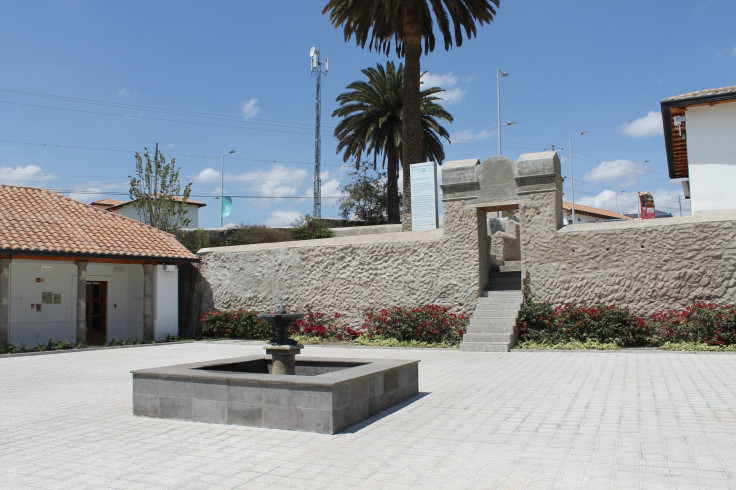
It’s also drawn in faculty members looking to explore new territory. “We come here because we see potential for our academic careers,” said Jorge Gomez, who joined Yachay earlier this year to lead an initiative on sustainable development. “We see a lot of untackled research here.” Ecuador’s biodiversity, its volcanic terrain and wealth of natural resources all provided a host of avenues for new discoveries, he said.
Only undergraduates attend Yachay Tech for now, but more housing and research space is expected to be completed for the forthcoming graduate program. Thirteen companies, including Microsoft, China Telecom, Cisco and Intel, have signed agreements to set up research centers near the university, according to Moreno, the international affairs officer. Across the valley, underneath a Hollywood-esque sign spelling out “YACHAY” in tall white letters, the company plans to bring in five pharmaceutical production plants to set up operations.
Hector Rodriguez, the CEO of Yachay EP, said the city was a “public, high-risk” project, but that the planning was solid enough to survive more economic turmoil. At the outset, the government allocated enough funds for the company to build the principal institutions to get the core of the city up and running, including Yachay Tech, and the current $1 billion budget would get them past a point of no return, he said.
“We’re going to make it,” he said. “We think this is going to be successful story without a dependency on the oil price.”
‘It Will Be A Big Fiasco’
But the recent departure of Albericio, the former head of Yachay Tech, opened up new scrutiny of the project’s finances. As he split with the university in July, he voiced many of his complaints to local news outlets. That set off a wave of backlash that halted a number of donations to Yachay Tech, city officials said.
One of Albericio’s grievances was that the four members of the board of trustees, which included himself during his tenure, earned a salary of $16,000 per month, supplied by taxpayers. The other three members were professors at the California Institute of Technology who didn’t live in Ecuador and dedicated only part of their time, through Skype and occasional visits, to making decisions for Yachay Tech.
“Making almost $17,000 from Yachay without being there, without working,” Albericio said. “If it was a private company, they could pay whatever they want. But Ecuador is not a rich country.”
“More than $260 million will be invested in basic services in Yachay" Héctor Rodríguez, CEO @CiudadYachay https://t.co/eJzusPe4Wj
— TBY Latin America (@TBY_Latam) September 16, 2015
After Albericio’s departure, Larson, the school’s chancellor, and Rodriguez, Yachay EP’s CEO, joined the board of trustees, earning the same monthly salaries.
Albericio questioned the board’s other decisions, including spending $1 million on international scholarships for a joint masters’ program with Carnegie Mellon University in Pittsburgh when he noticed Yachay Tech’s own laboratories still didn’t have gas or ventilation systems installed. Some students didn’t have on-campus housing to live in, and had to trek into Yachay for classes from the nearby town of Ibarra, about 11 miles away.
“Construction has stopped,” he said. “They cannot pay the workers, they cannot pay the companies and students are sitting in miserable furniture. And [the administration] is spending money on stupid things, first-class airplane tickets.”
Albericio’s departure was a major setback for morale at the university. One former Yachay Tech employee, who asked not to use her name for fear of reprisal, said several students had become disillusioned with the school over Albericio’s dismissal and conditions of the classrooms.
“The students feel like they’re nothing for the university,” she said. “But they’re everything for the university. If they don’t have the students, what are they going to do?”
Rodriguez, Yachay EP’s CEO, dismissed Albericio’s complaints, saying the former university head had authorized much of that spending as a member of the board of trustees. “Sadly, there was no leadership on the part of [Albericio] to self-critically take on what he was mistaken about,” he said, adding that there would “very probably” be legal proceedings ahead against Albericio for the damage his criticisms had caused to the university’s reputation.
Many of the problems with housing and other shortages were temporary growing pains, said Larson, the university chancellor. “Not everything is going to be smooth and worked out for the pioneer students,” he said. “They’ve had a few issues with housing and living here on campus. It’ll be much easier here when there’s a city, or at least a small city, right here.” By the time Yachay’s first class of students graduates, a little over three years from now, the university and city would be much more robust, he said.
But Albericio was blunt about his forecast for the city: “It will be a big fiasco,” he said, citing Ecuador’s economic squeeze. “The city, they say they will bring in 13 research institutes, but it’s impossible. They don’t have the money for that.”
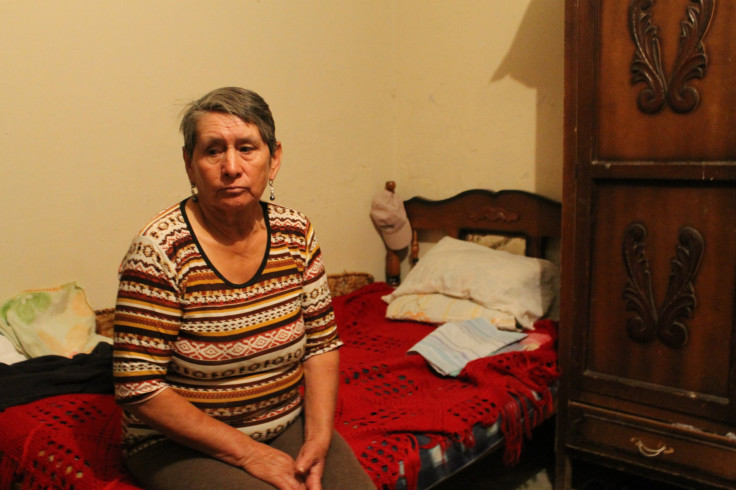
‘There Are No Jobs Here’
Meanwhile, in pockets around Yachay, a different kind of community resentment has already been brewing. When the Ecuadorian government conceived of the city, it carved out territory from the municipality of Urcuquí, expropriating property from estate owners and evicting farmers who worked the land. Yachay EP officials said the vast majority of those displaced were wealthy landowners, and that the company had provided jobs and educational opportunities for the nearby communities in Urcuquí.
Yolanda Morillo, 63, has a different story. She had been a resident of the area now known as Yachay, where she her husband owned around 24 acres of land, raising animals and cultivating carrots, corn, peppers and a range of other fruits and vegetables. Sitting in her dim, cramped apartment in Urcuquí, she recounted how government officials abruptly handed out citations to her and her neighbors back in 2011, ordering them to leave their homes within three months, without paying any compensation.
She refused to leave without proper payment, and eventually found a lawyer who helped litigate for compensation totaling about half the value of her land. In April, she and her husband finally left, leaving the property and all their animals behind.
“The most severe, severe thing was the emotional, psychological crisis,” she said. “It was like Russian roulette.”
Many of the people forced off the land were farmers and employees of the estates, she said, and the government’s promises of jobs and education never materialized for them.
“There are no jobs here,” she said. “People look for jobs, but there aren’t any.” As for her future in Urcuquí, she said simply that it was “uncertain.”
For the Morillo family and for Ecuador, the price of the dream of Yachay has in many ways already been paid. The stretch of land where Yolanda and her husband thought they would spend the rest of their lives now lies near the entrance of a shiny new building for a technical college making up part of the city’s sprawling academic complex. Just down the road is the university, where Correa visited in August, assuring teachers and students that the promise of a high-tech city was still within reach.
“Yachay is already transforming Ecuador, it’s already on the global map,” the president declared. “Nobody will touch our Yachay.”
Brianna Lee reported from Ecuador with support from the International Reporting Project.
© Copyright IBTimes 2024. All rights reserved.





















